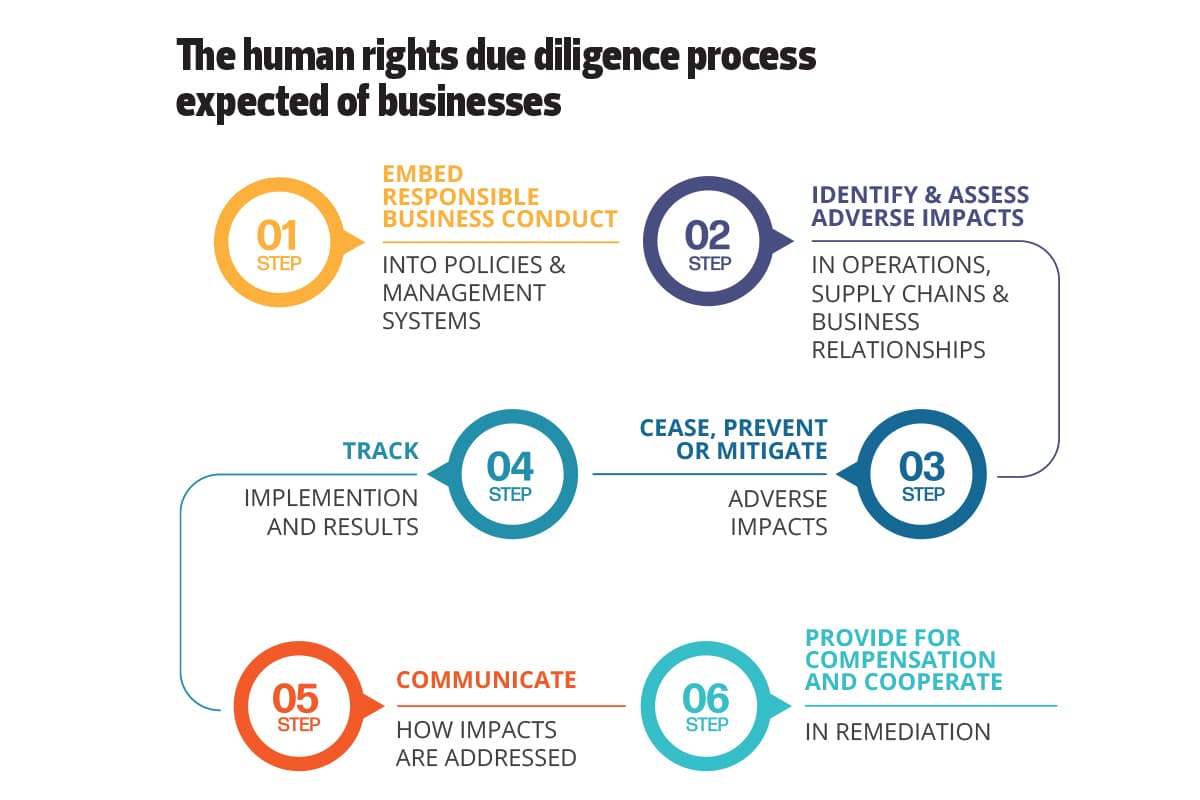
This article first appeared in The Edge Malaysia Weekly on April 17, 2023 - April 23, 2023
“Do we have to do something more? Doesn’t ESG also cover human rights? Why are you confusing us?” At training sessions, I am frequently asked whether ESG (environmental, social and governance) compliance will also satisfy business and human rights (BHR) matters.
There are a few responses I give. First is that while both are rooted in human rights, the obligations and liabilities are different. The way governments, businesses and regulators approach them is also not the same. ESG is often considered “good to do” or “best to have”. But BHR says certain things are “must haves” to protect people’s (human) rights. These rights are justiciable in the courts, meaning that people can sue businesses and governments if these rights are not respected.
Second, ESG standards are still being worked out. There is no one standard that can be said to apply. On the other hand, BHR obligations rest on international human rights law and standards, some of them already considered customary law. Thus, even if Malaysian law does not meet those standards, companies can be held accountable in a myriad of ways to those standards.
Third, BHR is broader than ESG. The 31 United Nations Guiding Principles (UNGPs) on Business and Human Rights adopted in 2011 have mandated that “human rights due diligence” (HRDD) assessments be conducted in all areas of a business.
HRDD is now a crucial component of responsible business practices and must be mainstreamed. Even the Global Reporting Initiative (GRI) had to revise its disclosure standards in 2021 to align its requirements with the UNGPs and other intergovernmental instruments.
Today, the disclosures must meet these higher standards. More importantly, “human rights” is not a standalone topic required to be reported on only if the company determines it to be material. It is an area that relates to sustainability concerns such as water, energy, pollution, data privacy, labour, anti-corruption, diversity, inclusion, non-discrimination, community, supply chain management and occupational health and safety.
Results from human rights and environmental due diligence (sometimes known as human rights and environmental impact assessments) must be reported along with the effectiveness of grievance mechanisms, rightsholder engagement and remediation measures to address negative human rights impacts (see diagram [adapted from the 2018 Organisation for Economic Co-operation and Development’s “Due Diligence Guidance for Responsible Business”] illustrating the HRDD process expected of companies).
Nevertheless, there are still plenty of gaps in the implementation of HRDD by companies. It is often talked about as good practice but not done. In road-mapping workshops we have conducted, we find that sustainability officers cannot explain why their company sustainability reports either fail to mention human rights due diligence or, when they are mentioned, there is under-reporting.
Inaccurate reporting of the operationalisation of due diligence is also on the rise. Perhaps whoever writes the reports does not fully understand the process, or the data transmitted is insufficient. How are the assessments done? What are the results? Have there been human rights violations? Have they been resolved? Information is scanty. Cases are not mentioned. This dearth of information frustrates rightsholders and has resulted in the rise of regulations combating greenwashing.
Civil society organisations have to resort to naming and shaming to raise the alarm and get an appropriate response. Assurance measures are now increasingly required. For example, Bursa Malaysia’s enhanced sustainability reporting framework imposes a duty on listed issuers to have their sustainability reports audited or independently assured.
These gaps in implementation must be plugged. Human rights due diligence must be viewed as an essential component of responsible business practices.
At its annual general meeting on March 18, the Malaysian Bar passed a resolution calling on the government to legislate for mandatory human rights due diligence and grievance mechanisms in all business operations that affect human rights, including, but not limited to, the areas of labour, governance and the environment. This is a strong call for immediate change.
Businesses are familiar with due diligence in the context of mergers and acquisitions as a practice to review financial risks. When it comes to human rights due diligence, the process is similar, but the focus shifts from financial matters to non-financial concerns, specifically those related to people and the planet. If we are to treat human rights as seriously as we do our revenue and profit, human rights (including environmental rights) due diligence should no longer be an option.
Edmund Bon has been working on human rights with governments, companies and civil society for more than 25 years. He currently focuses on operationalising human rights for businesses that care to elevate the standards of their human rights practices.
Save by subscribing to us for your print and/or digital copy.
P/S: The Edge is also available on Apple's AppStore and Androids' Google Play.